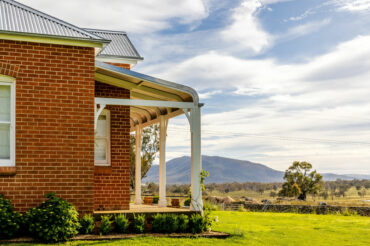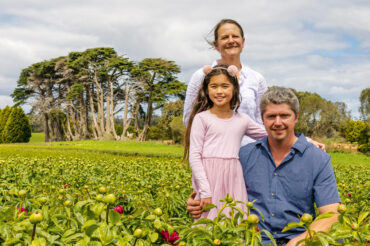A good rugby player is up for a challenge, quick on his feet and able to make the most of the opportunities that come his way. Western Queensland sheep farmer Andrew King has played a bit of rugby in his day and even represented his state for several years in the late ’80s. He took these lessons from the field into the paddock when he and his wife, Maree, took over his family’s sheep properties in western Queensland.
Andrew and Maree own Silverwood and Westfield stations, almost 18,000 hectares of natural grazing pasture southeast of Longreach. Westfield, which is where Andrew and Maree and their children Clair, 20, Holly, 17, Libby, 14, and Hamish, 11, live, has been in Andrew’s family since the late 1800s. Silverwood, which takes its name from a variety of boree tree that studs the Mitchell grass plains, has been run by the Kings for more than 60 years. Both properties are traditionally Merino wool-producing country, but by the time Andrew took over in the 1990s prolonged droughts and a growing wool stockpile were threatening their viability.
“We were looking for ways of diversifying, mainly to drought-proof our land,” Andrew explains. “And we heard about Dorpers, which at that stage were very new in Australia. I went to a couple of shows and what we learned was enough to convince us to move out of wool and into the meat market.” The Dorper was developed in South Africa in the 1930s and first introduced to Australia in 1996. It’s a hardy breed that sheds its fleece, avoiding the need for shearing, crutching and treatment for fly strike. Having made the transition, it didn’t take too much of a leap to take the next step of turning their farming operation organic. By that stage Andrew had met and married Maree, a home economics teacher on a country posting after graduation, and they were starting their family.
“Like any new parents you focus on what’s best for your kids,” Maree explains. “And it doesn’t take too long before you start to question the use of pesticides and chemicals, so it seemed a logical move to raise our sheep organically. Getting certification was a three-year process, as we had to do things such as get rid of our timber sheep yards because they had been treated with arsenic and replace them with steel ones.”
This story was originally published in Australian Country issue 15.2. Subscribe to the magazine here.
For more farm life stories, click here.
Words Kirsty McKenzie
Photography Ken Brass


















